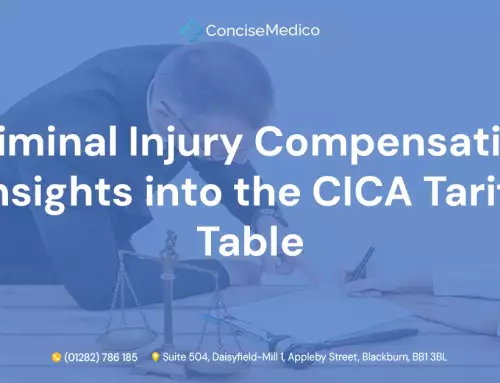TABLE OF CONTENT
Real change occurs when the Forensic Parole Board releases the prisoners from jail with adequate coping mechanisms, addictions under control, and harmful behaviours subdued. In fact, anyone who breaks these habits is more able to lead a happier, more calculated and active life in society – and make better decisions as a result. However,
In the UK, 2% of inmates have severe mental health issues, while 10% of convicts have psychotic issues such as schizophrenia, reports UK Parliament Committees.
Thus, it is a real challenge because compared to the general population, prisoners are more likely to experience mental health problems, commit suicide, and damage themselves or others. Thus, it is pretty understandable that there is a clear need for psychological therapies and research in prison.
This blog will take a quick dive into the role of forensic psychologists expert witness in prisoners’ rehabilitation and the role forensic risk assessments play in shaping the parole perspective and decision-making. So, without further ado, let’s spill the beans!
The Role of Forensic Psychologists in Prisoners Rehabilitation
Forensic psychologists help prisoners manage mental health issues that have caused criminal behaviour, like dealing with emotional and rage issues. So, if you want to know what psychologists actually do behind the bars – keep reading. It gets interesting!
A forensic psychologist (or clinical psychologist specialised in criminal justice) fulfils a handful of responsibilities to achieve the following goals:
- Executing research studies to assess conditions impacting prisoners
- Analysing the effects of bullying in prisons
- Forensic offender profiling using statistical data analysis
- Providing prison personnel with support in areas like stress management
- Staff education on how to deal with bullying and negotiation skills for hostage situations
To achieve the above-listed goals, forensic psychologists understand the convicts better than the police because they spend a lot of time working with them in prison. One-on-one interviews are conducted with prisoners as part of the assessment and treatment process. The best course of action is chosen for everyone before being reviewed and evaluated.
Prison psychologists often utilise CBT (Cognitive Behavioural Therapy) and mindfulness approaches to address mental health issues, including anxiety and depression. In addition to these, they also oversee programmes for anger control, drug and alcohol addiction treatment, and social and cognitive skill development.
Read: Make a housing disrepair claim for Mental Health Problems
Psychological Risk Assessment for the Forensic Parole Board
Suppose psychological risk assessment by forensic psychologist determine that certain prisoners have significantly improved and pose little risk of harming themselves or others. In that case, it can increase their chances of jail sentence reduction or being released on parole.
Of course, there is no assurance that every prisoner who sees a forensic psychologist while they are there won’t commit another crime after they are released. However, offenders have a better chance of starting over and leading a life free from crime.
In fact, the clinical research, training, rehabilitation, and psychiatric therapies conducted in jail by staff as well as inmates prove this theory true. A forensic psychologist in the parole board case carries out the following responsibilities:
Forensic Risk Assessment Reports
The parole board requires forensic psychologists to carry out a series of risk assessments. While most assessments are forensic risk assessment reports, the parole board obliges them to fully address the prisoner’s release test. In addition, they also carry out violence risk assessments for prisoners with previous parole reviews. The parole board cases apply the following forensic assessments for parole releases:
- RSVP – Sexual Offending Risk
- SARAv3 – Intimate Partner Violence Risk
- VERA-2R – Terrorism / Extremist Violence Risk
- SAM or SRP and HCR-20v3 – Stalking Risk and Violence Risk
- SAPROF – Protective Factors Assessment Designed to Supplement Risk Assessment Tools
Read: Role of forensic psychologist as an expert witness
Psychometric And Clinical Assessments Reports for Forensic Parole Board
Forensic risk assessments are sometimes supplemented with regular clinical and psychometric assessments when the prisoners have genetic or psychiatric disorders. Examples of psychiatric disorders include autism, psychopathy, schizophrenia, etc.
This helps the parole board make more calculated decisions considering the prisoner’s case, violence risks and history. In light of the recent past, the parole board began redirecting the parole cases and hearing to clinical and specialist assessments. It helps the parole board in better and more informed decision-making. The parole board cases apply the following specialist assessments for parole releases:
- ADOS-2 or ADI-R and AQ-10 – Autism diagnosis and screening
- DIVA or ACE+ and Conners – ADHD diagnosis and screening
- SCID-5-PD and MCMI-IV or IPDE – Personality disorder diagnosis and analysis
- PCL-R or CAPP – Psychopathy development
- WAIS-IV, ABAS-3 or Vineland3 – Learning disability diagnosis
- DKEFS – Executive functioning difficulties linked to brain injury
- WMS-IV – Executive functioning difficulties linked to memory
- Mental health (such as depression, anxiety and other psychometric tools)
- PTSD assessment and diagnosis
- Sexual deviance and sexual preoccupation
Communicating the Reported Information Clearly
Forensic psychologists in the parole board are responsible for conducting deep research and analysing criminal behaviours, psychological risks, and their progress areas. They are equally responsible for communicating all this information appropriately and clearly to everyone involved in the parole case.
For this case, the communication of information mostly takes place in the form of an expert witness report. These reports need to be in accordance with the law and the court orders. In addition to that, these reports need to follow ethical guidelines, which includes breaking down complex terms, simplifying complex concepts. disclosure of experience, etc.
Therefore, it is important for a forensic psychologist expert witness to be mindful of the way they communicate their findings. It is recommended because an assessment can be the world’s best risk assessment, but if it doesn’t communicate the information precisely and properly; it’s useless.
Read: How much time is required for CICA claim?
Conclusion
Forensic psychologists are fundamentally responsible for providing research-based data to support the creation of better prison system policies and operational procedures. And if successful, working with a professional psychologist while incarcerated can change a prisoner’s life. Due to this very reason, forensic psychologists can provide expert witness testimony in court as well as before the parole board and mental health tribunals.
Regardless of why you are interested in this article, we’d like you to get in touch with us if you want to discuss a case. You can easily conclude if a forensic assessment is valuable for your parole case by having an informal chat with us.
Ready to leverage the expertise of our forensic psychologist expert witnesses for your legal case? Contact us today to schedule a consultation. Our panel of 50+ Psychologists at Concise Medico is committed to providing top-notch medico-legal reports, assessments, and courtroom testimonies tailored to meet your specific needs.




